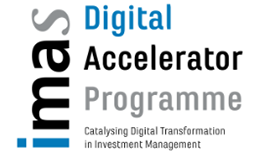Singapore
We’re joining forces with FinTech and investment centres around the world.
Home » Global Partners » Singapore
In Brief
Singapore is consistently ranked as a top global FinTech centre, and its FinTech landscape continues to grow from strength to strength. The market is the most matured among the region, and has been the preferred base for FinTech firms and investments in ASEAN (Association of Southeast Asian Nations).
As of 2023, Singapore is home to 1,580 FinTech firms, the FinTech investments in Singapore bucked global trend, up 22 percent to US$4.1 billion in 2023, from US$3.4 billion the previous year. Top three investment areas in Singapore were Crypto/Blockchain, Payments and WealthTech.
The government continues to push to encourage FinTech innovation across a broad range of areas.
The Monetary Authority of Singapore (MAS) introduced Asia’s first regulatory sandbox for the FinTech industry to drive FinTech innovation in the country. The Sandbox relaxes specific regulatory requirements to enable live experiments of innovation within boundaries.
Government incentive schemes including the “Smart Nation” programme and FSTI (Financial Sector Technology and Innovation) scheme, provide support for the creation of a vibrant ecosystem for innovation.
Singapore has the most variety in terms of solutions focus in ASEAN. The highest number of deals were made with firms offering payment solutions.
Singapore Life:
First fully digital insurer. Focus includes making financial products and services more accessible to a mobile first generation.
Everex:
Blockchain powered platform for cross border money transfers.
Smartkarma:
A research network, providing investment insights by drawing independent research together.
Funding Societies:
A crowdfunding P2P (peer to peer) lending platform for SMEs. Presence across various Southeast Asian markets.
CardUp:
A payment platform that allows users to make big ticket payments using credit cards where cards are typically not accepted.
Bambu:
A robo advisor platform offering smart advisory solutions powered by proprietary algorithms and machine learning tools.
PolicyPal:
An mobile application which allows users to find and manage their insurance policies via a single, unified platform.
Singapore has a diversified asset management ecosystem with approximately 895 managers across the traditional and alternative sectors. A large number of leading global public owners are also locating their investment teams in Singapore to access regional investment opportunities in the region and trade within the Asian time zone.
MAS and the Accounting and Corporate Regulatory Authority (ACRA) launched the Variable Capital Companies framework (VCC) in 2020, a new corporate structure designed for investment funds. Singapore’s rule of law, regulatory standards, ease of doing business, global connectivity, as well as the availability of a skilled workforce makes it a trusted fund domicile. The VCC has attracted diverse interest from global and local asset managers due to its flexibility, such as its ability to be used as either a standalone fund or as an umbrella fund with multiple sub-funds, across traditional and alternative investment objectives.
Information sourced from:
Market Summary
Economy
Singapore’s economy is characterised by excellent finances and a high degree of openness, with the country being highly dependent on international trade. Its economy is based on electronics, petrochemicals, trade, finance, and business services. The services sector contributes 70.4% of GDP and employs 83% of the active population.
The country provides one of the world’s most business friendly regulatory environments for local entrepreneurs and is ranked among the world’s most competitive economies.
International Presence
As one of the world’s wealthiest and most trade dependent countries, Singapore has trade agreements with many countries, including a free trade agreement with the US. The Asia Pacific Economic Cooperation (APEC) is based in Singapore, of which Singapore is a founding member.
Culture
The culture in Singapore is defined by the different ethnic groups in the city state. Chinese Singaporeans make up the majority of the population (76.2% of the citizen population), followed by Malay (15.0%), and ethnic Indians (7.4%).
Singapore was a British trading post from 1819 until the second world war. Following the aftermath it became an independent republic in 1965. The influence of past British governance means that it is one of the most Westernised countries in Asia.
Fast facts
Population: 5.5 million
Language: English, Mandarin, Malay, Tamil
Currency: Singapore dollar (SGD)
Political System: Parliamentary democracy
Legal System: English common law
IA Partner
The Investment Management Association of Singapore (IMAS) is a representative body for investment managers spearheading the development of the industry in Singapore.
By fostering high standards of professionalism and promoting exemplary practice among members, the association seeks to set the benchmark for the investment and fund management industry in Singapore.
It also serves as a forum for members in discussions as well as a collective voice where representation is needed on behalf of the investment management industry, facilitating training for its members, and contributing towards investor education.
FinTech Hub
The Investment Management Association of Singapore (IMAS) have collaborated with the Infocomm Media Development Authority (IMDA) to deliver their Digital Accelerator Programme (DAP). Riding on the national innovation programme, the Open Innovation Platform (OIP) run by the IMDA, IMAS are now on the 2nd iteration of their DAP bigger and have focused on the continual development of the offering to provide greater access to the asset management world, thereby increasing the chance of commercialisation of digital solutions.
As the national association for asset management, IMAS seek to bring the best and brightest tech firms that can create and customise innovative digital solutions to meet the needs of the asset management space.




